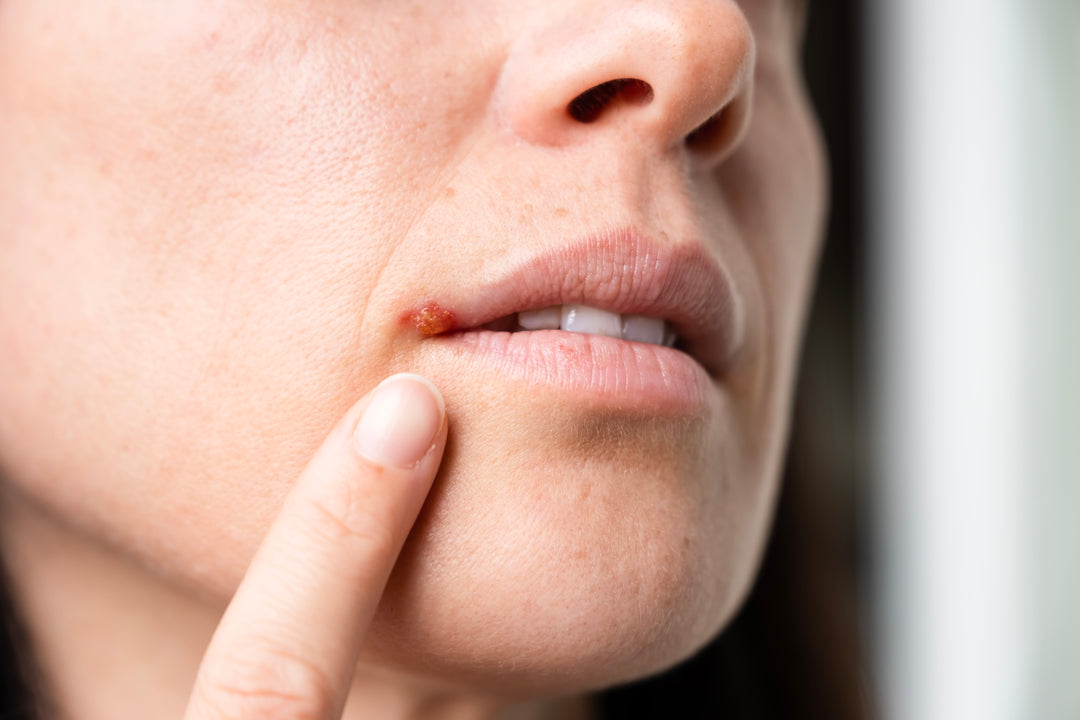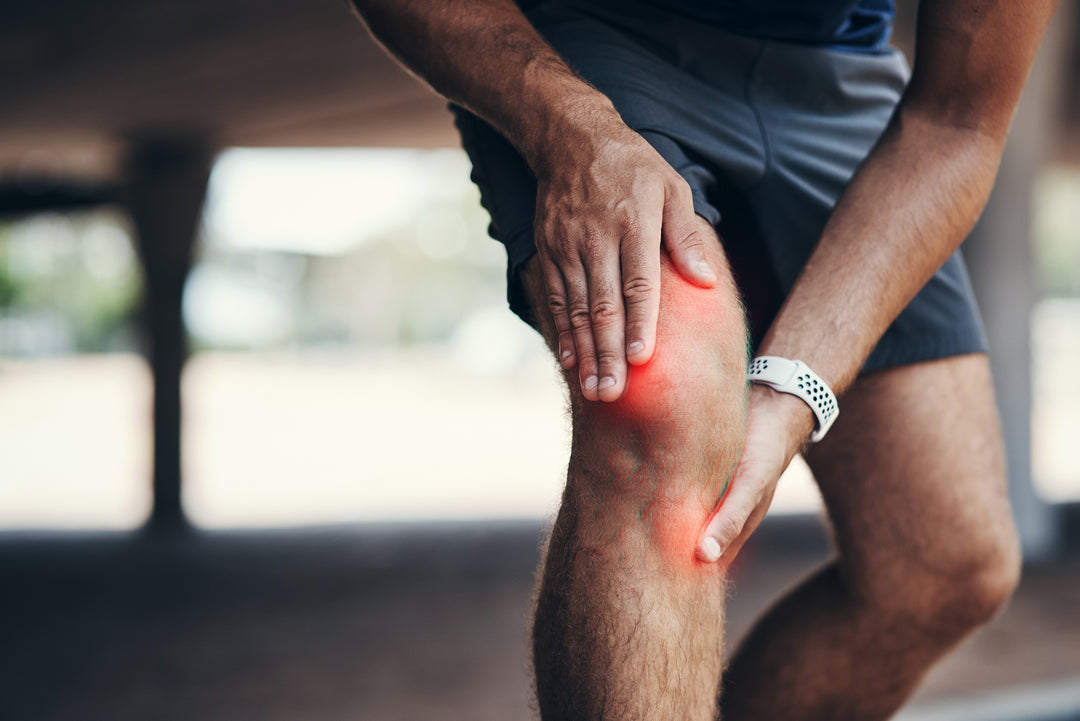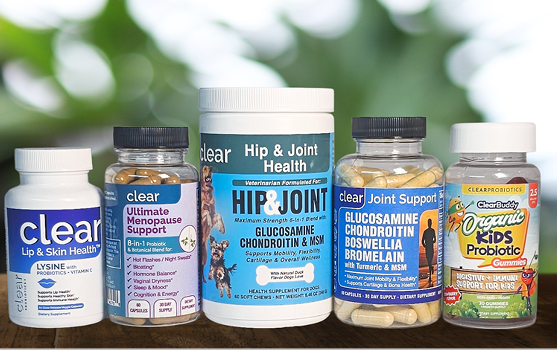Do Anxiety Supplements Work? Here's What the Science Says
Anxiety is a daily battle: your heart races, your palms get sweaty, and you feel like you can't catch your breath. If you're one of those people, you might be wondering if supplements could help ease your anxiety symptoms. Do anxiety supplements work?
The short answer is that there is some science to support the use of certain supplements for reducing anxiety. However, it's important to remember that not all supplements are created equal—and what works for one person may not work for another.
It's also worth noting that most research on anxiety supplements has been done on animals rather than humans. That said, let's take a look at some of the most popular options and see what the science has to say about do anxiety supplements work.
Table of Contents
Do Anxiety Supplements Work?
Anxiety is a normal emotion that everyone experiences from time to time. It can be triggered by a variety of factors, including stress, life changes, and genetic predisposition.
When anxiety becomes excessive, it can interfere with daily life and may lead to an anxiety disorder.
Anxiety disorders are the most common mental health disorders in the United States. They affect 40 million adults, or 18.1% of the population, every year.
There are many different treatment options available for anxiety disorders, including medication, therapy, and lifestyle changes.
Some people also turn to supplements to help manage their anxiety.
But do anxiety supplements work?
The answer is not clear. There is some evidence to suggest that certain supplements may be helpful for reducing anxiety, but more research is needed.
The most promising supplements for anxiety include Omega-3 fatty acids, magnesium, probiotics, and herbs such as ashwagandha and lemon balm.
Omega-3 fatty acids are a type of fat found in fish oil and certain plant oils. They have anti-inflammatory effects and have been shown to reduce anxiety in animal studies.
Magnesium is a mineral that is involved in many bodily processes, including muscle relaxation and anxiety regulation. Low magnesium levels have been linked to anxiety disorders.
Probiotics are live bacteria that are found in yogurt and other fermented foods. They have a variety of health benefits, including reducing anxiety through gut health.
Ashwagandha is an herb that has been used for centuries in traditional Indian medicine. It is thought to reduce anxiety by helping to regulate the stress hormone cortisol.
Lemon balm is an herb that has a calming effect and has been shown to reduce anxiety in human studies.
While there is some evidence to suggest that these supplements may be helpful for reducing anxiety, more research is needed.
It is also important to remember that supplements are not regulated by the FDA and may not be safe for everyone.
If you're considering taking a supplement for anxiety, it's important to talk to your doctor first.
Types of Anxiety Supplements
When it comes to anxiety supplements, there are many different options available on the market.
But do anxiety supplements work?
This is a question that many people ask. The answer may surprise you.
There are many different types of anxiety supplements available. Some of these supplements are designed to help with specific symptoms of anxiety, while others are designed to help with the overall condition.
Some of the most popular anxiety supplements include:
1. Probiotics
Probiotics help maintain healthy gut bacteria and balance cortisol and serotonin for improved sleep and optimum mental health. It also helps promotes clear thinking, increased brain function, and overall cognitive health.
2. 5-HTP
5-HTP is a naturally occurring amino acid. It is a precursor to serotonin, which is a neurotransmitter that plays a role in mood and anxiety.
5-HTP supplements are thought to work by increasing serotonin levels in the brain.
3. GABA
GABA is a neurotransmitter that plays a role in regulating anxiety. GABA supplements are thought to work by increasing GABA levels in the brain.
4. Lemon Balm
A member of the mint family, lemon balm is known as a calming herb. It was used in medieval times to reduce anxiety, stress, and discomfort from gas, heartburn, and stomach aches.
5. St. John's wort
St. John’s wort is a plant that has been used in traditional medicine to treat a variety of mood disorders, including severe depression and seasonal affective disorder (SAD).
It has also been used to relieve symptoms of insomnia, premenstrual syndrome, menopause, and dermatitis.
While research has shown some promise for St. John’s wort for depression, there hasn’t been enough evidence to support its effectiveness.
6. Valerian
A perennial plant, valerian has been used to treat a variety of ailments since the 2nd century AD. It gained popularity in the 17th century in Europe and was commonly used as a sedative. It was also used to relieve stomach pain.
Some research suggests that Valerian may help improve sleep among insomnia patients.

(Source)
7. Kava
In research studies, participants taking kava extract experienced reduced anxiety and stress levels, as well as elevated mood, increased coping ability, and better sleep.
Kava is also thought to relieve physical symptoms of stress such as muscle tightness, heart palpitations, and jitteriness.
8. Passionflower
Passionflower is thought to work by increasing the level of gamma-aminobutyric acid (GABA) in your brain. This chemical decreases the activity of some neurons, which makes you feel calmer.
9. Skullcap
The herb skullcap has been used to treat nervousness, anxiety, and seizures for more than 200 years.
Skullcap has been shown to have tremendous antioxidant properties. It may help with neurological conditions such as Alzheimer's, Parkinson's, and depression.
10. Chamomile
One of the most popular dietary supplements, chamomile, is used for a wide variety of purposes. These include anxiety, digestive issues, skin irritation, wounds, and soothing babies.
While most people drink the herb in form of herbal tea, it has also been used in a number of herbal remedies such as in skin creams and ointments. While its calming effects have been well documented, there hasn't been much research on whether or not it effectively treats anxiety.
11. Lavender
In addition to smelling great, lavender has a number of health benefits. This includes reducing the levels of anxiety and stress.
A number of studies have found that lavender can reduce stress in massages, aromatherapies, bath products, decor, or cooking.
As you can see, there are many different anxiety supplements available.
But do anxiety supplements work?
The answer may surprise you.
Pros and Cons of Taking Anxiety Supplements
For some people, anxiety can be so overwhelming that it interferes with their daily lives. There are a number of different treatment options for anxiety, including therapy, medication, and lifestyle changes.
Some people also turn to supplements to help ease their anxiety. Supplements are not a cure-all for anxiety, but they can be a helpful addition to other treatments.
It's important to remember that supplements are not regulated by the FDA, so it's important to do your research before taking anything.
Before taking any supplements, talk to your doctor to make sure they're safe for you. Supplements can interact with other medications you're taking and may not be suitable for everyone.
If you're considering taking an anxiety supplement, here are some pros and cons to keep in mind.
Pros:
- Supplements are generally safe when used as directed.
- They may help to ease mild anxiety symptoms.
- They're often less expensive than other treatment options.
Cons:
- Supplements are not regulated by the FDA.
- They may not be effective for everyone.
- They can interact with other medications you're taking.
- Some people may experience side effects from taking supplements.
If you're struggling with anxiety, it's important to talk to your doctor about all of your treatment options. Supplements may be a helpful addition to other treatments, but they're not a permanent solution.
How to Choose the Right Supplement for You
Choosing the right supplement can be tough, especially with all of the options on the market today. But don't worry, we're here to help!
Here are a few things to keep in mind when choosing a supplement.
What are your goals?
Are you looking to improve your overall health, or are you targeting a specific health concern?
This is important to consider as different supplements can have different effects on the body.
What are the ingredients?
Make sure to check the label of any supplement you're considering. Some supplements contain ingredients that may not be suitable for everyone, so it's important to know what you're taking.
Are there any side effects?
Again, check the label or speak to a healthcare professional to see if there are any potential side effects associated with the supplement you're considering.
Do your research!
There's a lot of information (and misinformation) out there, so it's important to do your research before taking any supplement.
Speak to your healthcare professional, read reliable sources, and make sure you understand what you're taking and why.
We hope this helps you on your journey to finding the right supplement for you!
When to Seek Professional Help
Anxiety is a normal emotion that everyone experiences at one time or another. However, when anxiety starts to interfere with daily life, it may be time to seek professional help.
There are several different types of anxiety disorders, each with its own set of symptoms.
Some of the most common symptoms of anxiety disorders include:
- Constant worry
- Difficulty concentrating
- Feeling restless or on edge
- Difficulty sleeping
- Muscle tension
- Excessive sweating
- Heart palpitation
- Shortness of breath
- Nausea
- Dizziness
If you are experiencing any of these symptoms on a regular basis, it is important to talk to a doctor or mental health professional They can help you determine if you have an anxiety disorder and, if so, what type of treatment would be most effective.
There are a variety of treatment options available for anxiety disorders, including therapy, medication, and lifestyle changes. Often, a combination of these methods is the most effective.
Do anxiety supplements work?
Some people find that anxiety supplements help to reduce their symptoms, while others find that they do not work.
It is important to talk to a doctor or mental health professional before taking any supplements, as they can interact with other medications you may be taking.
FAQs About Do Anxiety Supplements Work
What supplements should I take for anxiety?
The best anxiety supplements for each person may vary depending on the severity and cause of their anxiety.
However, some common supplements that have been shown to be effective in reducing anxiety symptoms include omega-3 fatty acids, magnesium, probiotics, and ashwagandha.
What can I take naturally for anxiety?
The best natural anxiety supplement for one person may not work as well for another.
However, some popular anxiety supplements that people take include valerian, lemon balm, chamomile, lavender, and passionflower.
Are there vitamins that help with anxiety?
The effectiveness of vitamins and supplements for anxiety may vary from person to person. However, some people may find that certain vitamins and supplements can help to reduce anxiety symptoms, including B complex, vitamin E, and vitamin C.
Can anxiety be cured naturally?
Anxiety can be a serious condition, but many people have found ways to treat it naturally. While medication can be an effective form of treatment for some, many have found that alternative treatments like meditation or exercise can alleviate their symptoms.
Conclusion
Do anxiety supplements work? Don’t just buy the first product you find in the stores, chances are it won’t work very well. Take the time to do your research and determine which supplement will work best for you.
The best results will come when you experiment yourself with different herbs and extract combinations. What works for others may not work for you, so try different things out.
Some herbal supplements may work better for your specific condition and metabolism than others, but the combination of these herbal remedies will definitely help.








